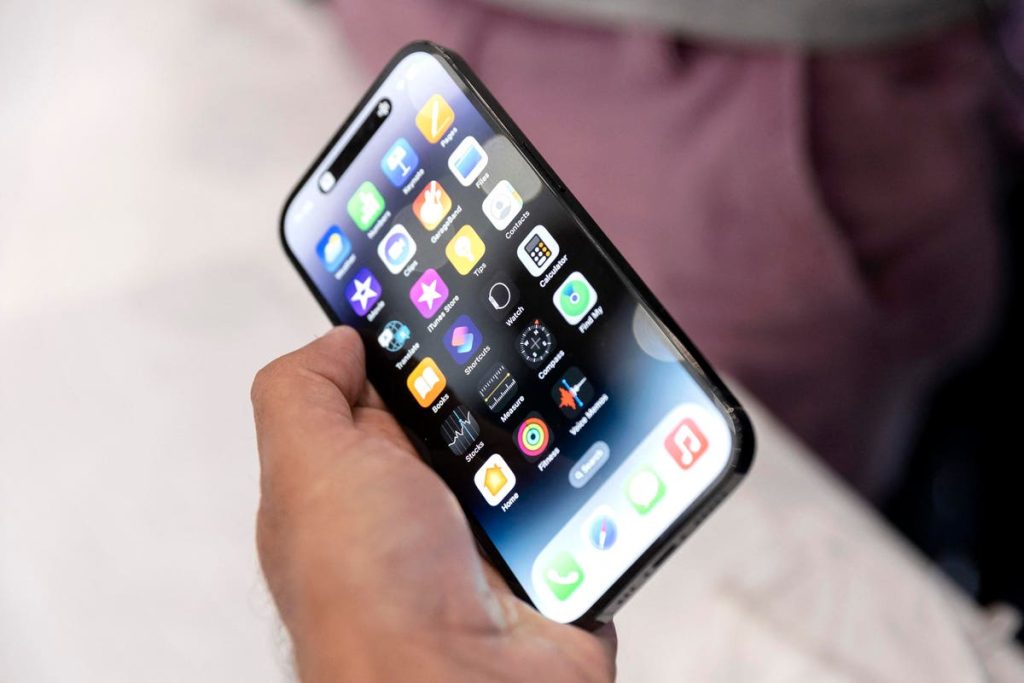Taking a look back at another week of news and headlines from Cupertino, this week’s Apple Loop includes disappointing iPhone 15 news, a peculiar screen upgrade, Apple’s folding phone plans, new App Store lawsuit, Unity’ support for VisionOS, Arc Browser released for iOS, and building a better AirPods case.
Apple Loop is here to remind you of a few of the very many discussions that have happened around Apple over the last seven days (and you can read my weekly digest of Android news here on Forbes).
iPhone 15 Delayed
Apple looks set to delay the launch of the next iPhone. The iPhone 15 reveal traditionally takes place in early September, with the retail release happening in late September, putting the first rush of sales on Apple’s Q3 numbers. The latest details from the supply chain show a delay into October due to manufacturing issues:
“In a research note shared with Barrons, Wamsi Mohan, a global securities analyst at Bank of America, revealed that after conducting channel checks in Apple’s supply chain, he expects the iPhone 15 release date to be in the fourth quarter, spanning from October to December. Mohan is known for accurately predicting the iPhone 12 delay in 2020, and this latest report is significantly more of a shock, given the former was widely (and predictably) impacted by the COVID-19 pandemic.”
(Forbes).
Take It Over The Edge
Those waiting on the iPhone15 handsets do have something to look forward to, as the latest leak of third-party case designs and screen protectors show Apple will be shrinking the bezels and offering a higher screen-to-body ratio on the handsets… something mighty impressive for a phone already sold with an ‘edge-to-edge’ screen.
“The screens Ice Universe attributes to the Pros have stunningly thin bezels, unlike anything we have seen on iPhones before. This revelation aligns with Ice Universe’s claim in March that the iPhone 15 Pro Max would boast the thinnest bezels in smartphone history.”
(Ice Universe via Forbes).
Samsung Teases Apple With Folding Technology
The foldable screen has become a status symbol on smartphones, and they are also showing up on some laptops. Apple has firmly stayed away from this technology, at least in public. Behind closed doors, Samsung is seeking to woo Tim Cook and his team to the bendable display:
” This week at SID Review Workshop in Seoul, Samsung confirmed in a roundabout way that it is working on developing a large foldable screen for Apple. And by the sounds of it, the panel is intended to be used in a laptop, i.e., MacBook. But before this Apple product can happen, Samsung has to iron out a few kinks in its foldable display technology to meet Apple’s standards.”
(SamMobile).
Apple Faces UK App Lawsuit
Apple is facing a UK lawsuit over the commission it charges developers. The lawsuit targets the classic thirty per cent rake, arguing that Apple’s monopoly on distribution is a crucial contributor to what it describes as abusive pricing:
“Apple has previously said that 85% of developers on the App Store do not pay any commission and that it helps European developers to access markets and customers in 175 countries around the world through the App Store. The UK lawsuit at the Competition Appeal Tribunal is being brought by Sean Ennis, a professor at the Centre for Competition Policy at the University of East Anglia and a former economist at the OECD, on behalf of 1,566 app developers.”
(Reuters).
Unity Support for VisionOS
Just as the Developers Kit for VisionOS becomes available on loan from Apple, Unity has announced its beta program that will support VisionOS developers with its familiar tools helping Apple’s courageous quest to sculpt mixed reality in its own image:
“…we are excited to share that Unity’s beta program for creating spatial experiences on the visionOS platform starts today… The visionOS platform represents an exciting opportunity for developers to create the next generation of compelling spatial experiences using the Unity Editor they know and love. We’re also thrilled to debut Unity’s PolySpatial technology, which will power Unity content alongside other apps in the Shared Space on Apple Vision Pro.”
(Unity Blog).
Arc Browser’s Full Release
What happens when you move away from the standard paradigm of web browsing? You get the Arc browser, and now it’s available for everyone:
“We’ve covered Arc a lot in recent months, both because it’s a good browser and because it’s a big new idea about how you use the internet. The Browser Company’s ultimate plan is to build “the operating system for the internet.” Arc isn’t just a place to see webpages; it has tools for taking notes, making visual and collaborative easels with others, redesigning webpages to your liking, and more.”
(The Verge, and the browser is available at Arc.net).
And Finally…
Wondering if Apple could make its hardware more accessible without losing any of the features. Once more, Ken Pillonel demonstrates how, with minor changes, Apple’s technology can be easily repairable. This time, he’s showing how the AirPods Case can be fitted with an easily replaceable battery anyone could do:
“Pillonel said his goal is to demonstrate how the AirPods Pro “could have been easily made repairable with minimal effort” and to encourage customers “to be more mindful of their choices, and to motivate manufacturers to prioritize sustainability.”
“As with some of his previous projects, Pillonel’s latest work casts a stark spotlight on Apple, a tech conglomerate that has not, or will not, release a set of AirPod earbuds that don’t require buying a whole new case when a part of eventually dies (as you knew it would).”
(Ars Technica).
Apple Loop brings you seven days worth of highlights every weekend here on Forbes. Don’t forget to follow me so you don’t miss any coverage in the future. Last week’s Apple Loop can be read here, or this week’s edition of Loop’s sister column, Android Circuit, is also available on Forbes.
Read the full article here










